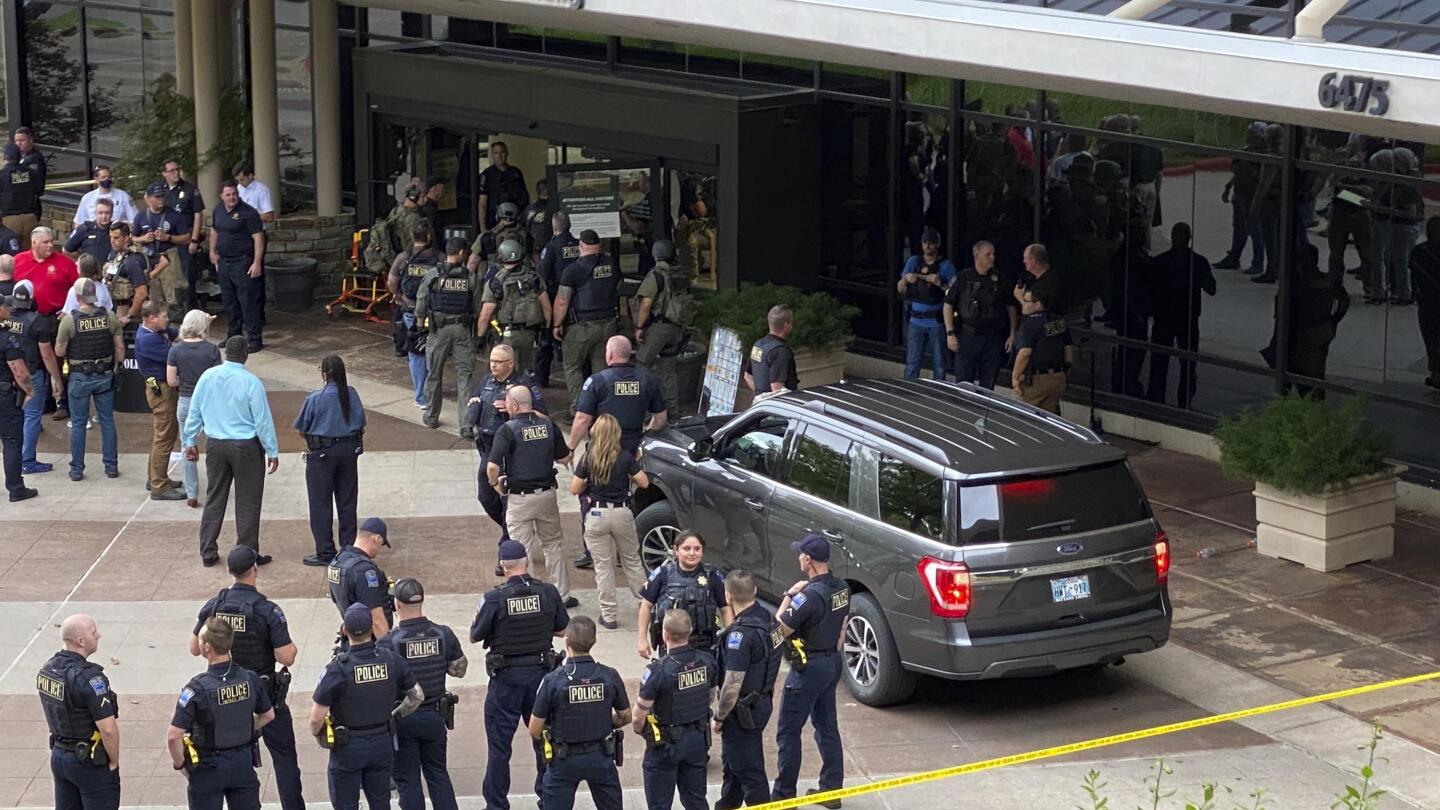
‘I hear the screams’: Tulsa race massacre remembered
Al JazeeraViola Fletcher can still hear the screams. I will not, and other survivors do not – and our descendants do not.” As Tulsa marks the 100-year anniversary of the attacks on Monday – and as a reckoning with the US’s long history of anti-Black racism, slavery and state violence continues nationwide – Tulsa massacre survivors and their descendants are still demanding recognition and reparations. “I’m asking that my country acknowledge what has happened to me – the traumas and the pain and the loss.” The massacre An Oklahoma commission released a report in 2001 detailing the deadly violence that engulfed the Greenwood neighbourhood beginning on May 31, 1921 – as well as the racism that led to the hours-long assault on the area, which was also known as “Black Wall Street”. “The history has been actively silenced” for so many years, Scott Lewis said, which is part of what makes the Tulsa race massacre centenary so important. “They need to take some action, but the action they’re taking is not action that incorporates the views or recommendations or input from the survivors.” The 1921 Tulsa Race Massacre Centennial Commission says on its website that its mission is to educate people about the massacre and its impact, remember the victims and survivors, and “create an environment conducive to fostering sustainable entrepreneurship and heritage tourism” in Greenwood and North Tulsa through events and other activities to mark the 100-year anniversary.
History of this topic

Tulsa’s First Black Mayor Plans To Address An Ugly History
Huff PostMonument erected in Tulsa for victims of 1921 Race Massacre
Associated Press
Descendants Of Tulsa Massacre Victims Skeptical Of DOJ Review
Huff Post
Justice Department To Launch Review Into 1921 Tulsa Race Massacre
Huff PostTulsa commission will study reparations for 1921 race massacre victims and descendants
Associated PressA World War I veteran is first Tulsa Race Massacre victim identified from mass graves
Associated Press
First victim of 1921 Tulsa massacre of Black community is identified since graves found, mayor says
LA TimesLast known survivors of Tulsa Race Massacre challenge Oklahoma high court decision
Associated PressWhat we know about the lawsuit filed by the last survivors of the 1921 Tulsa Race Massacre
Associated Press
Oklahoma Supreme Court Dismisses Lawsuit Of Last Tulsa Race Massacre Survivors Seeking Reparations
Huff Post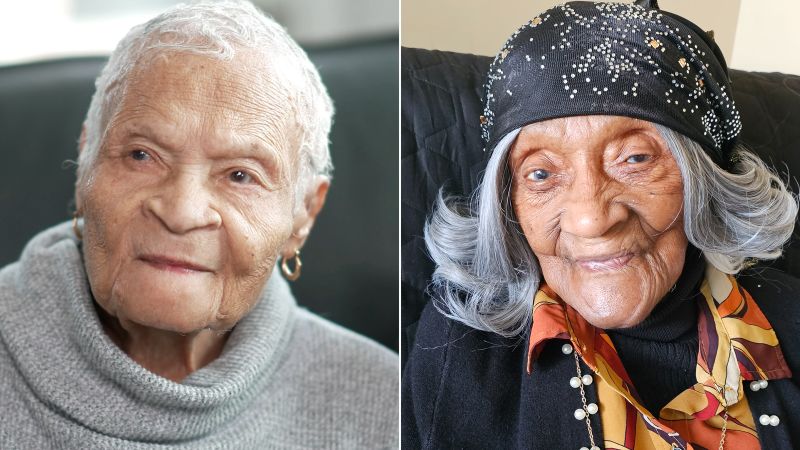
A final chance for the survivors of the Tulsa Race Massacre: ‘This is it’
CNNHughes Van Ellis, youngest known survivor of Tulsa Race Massacre, dies at 102
Associated Press
Hughes Van Ellis: One of the last survivors of Tulsa race massacre dies at 102
Hindustan Times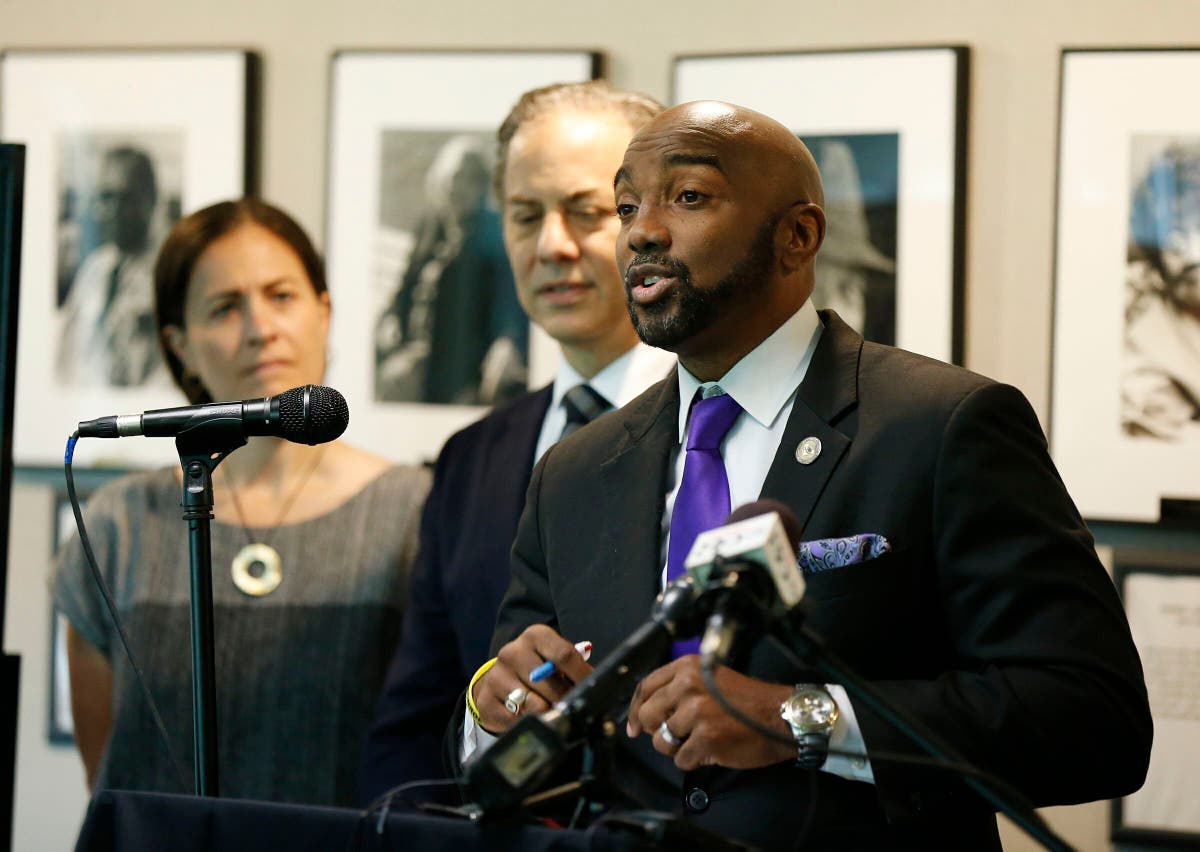
Attorneys for 3 last-known survivors of 1921 Tulsa Race Massacre appeal dismissed reparations case
The Independent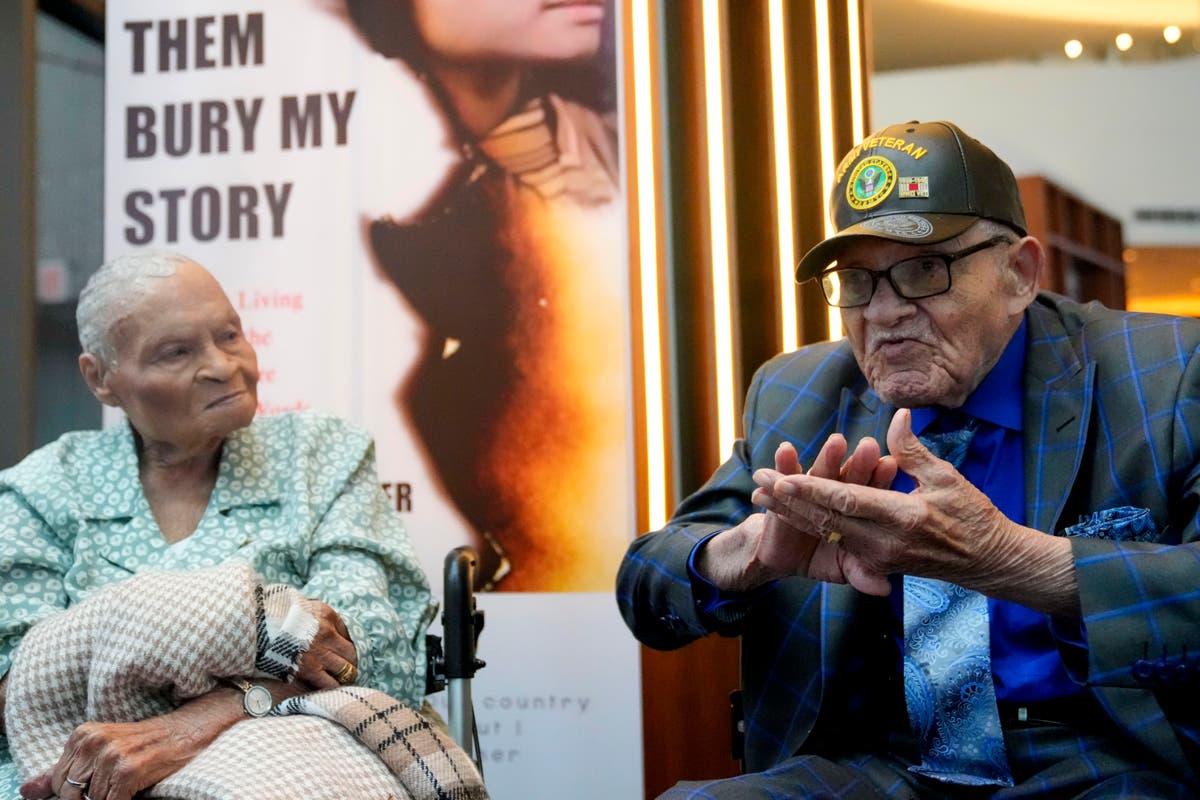
Tulsa race massacre survivors vow appeal after years-in-the-making lawsuit dismissed
The Independent
Judge Dismisses Reparations Lawsuit For Tulsa Race Massacre
Huff PostJudge dismisses lawsuit seeking reparations for the 1921 Tulsa Race Massacre
Associated Press
Judge dismisses lawsuit seeking reparations for the 1921 Tulsa Race Massacre
LA Times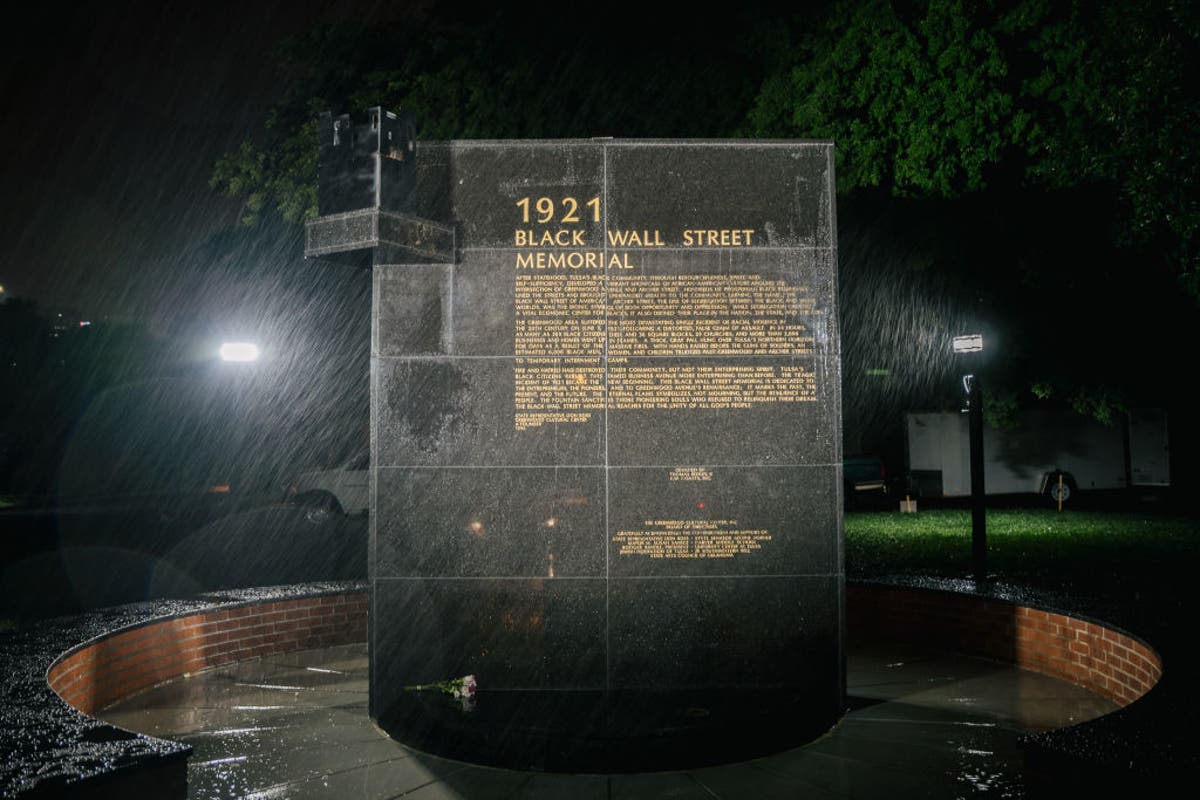
Oklahoma superintendent sparks outrage with claim Tulsa massacre wasn’t about race
The IndependentViola Ford Fletcher, oldest living Tulsa Race Massacre victim, publishes memoir
Associated Press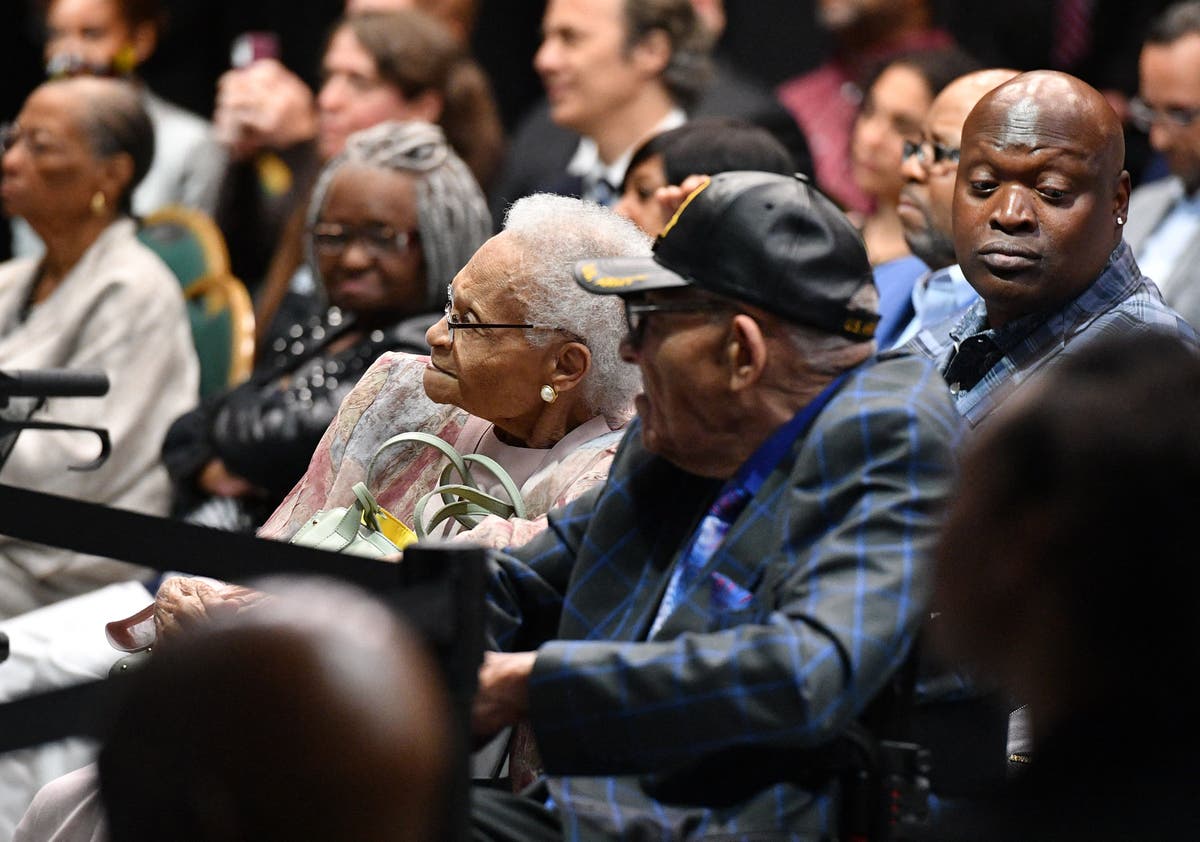
Tulsa race massacre survivors are fighting for justice 102 years after catastrophic attack
The Independent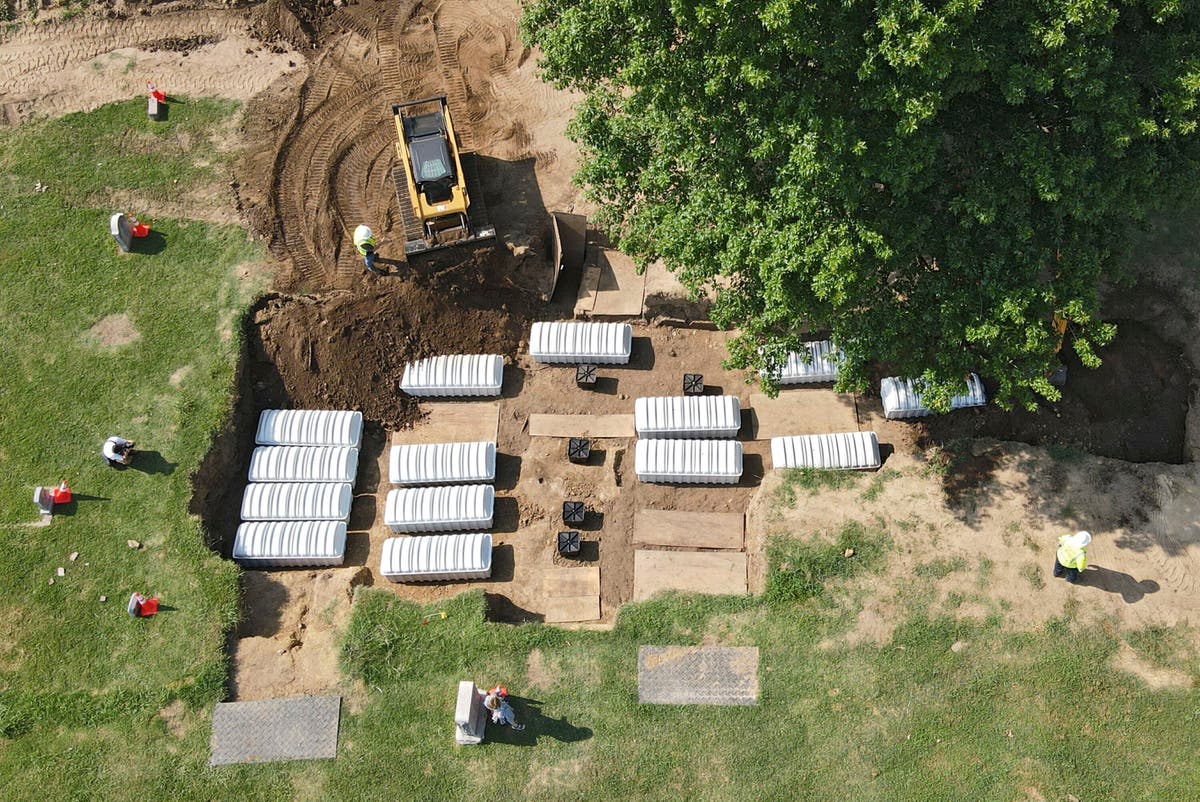
Scientist: Progress in identifying Tulsa massacre victims
The Independent
Presumed descendants of Tulsa massacre victims can give DNA
LA TimesGlobalisation and cultural memory
The Hindu
19 bodies reburied amid protests in search for Tulsa victims
The Independent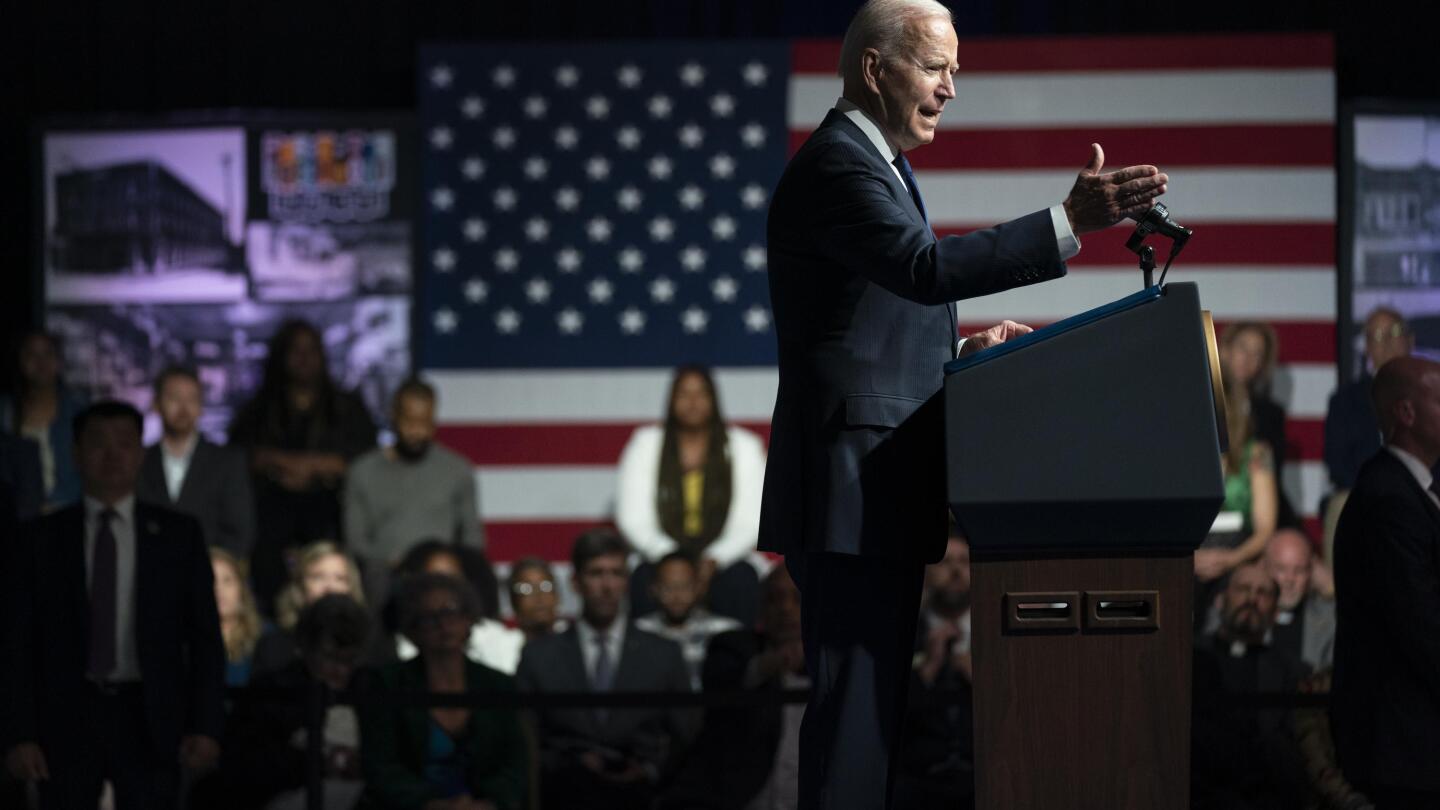
Biden decries ‘horrific’ Tulsa massacre in emotional speech
Associated Press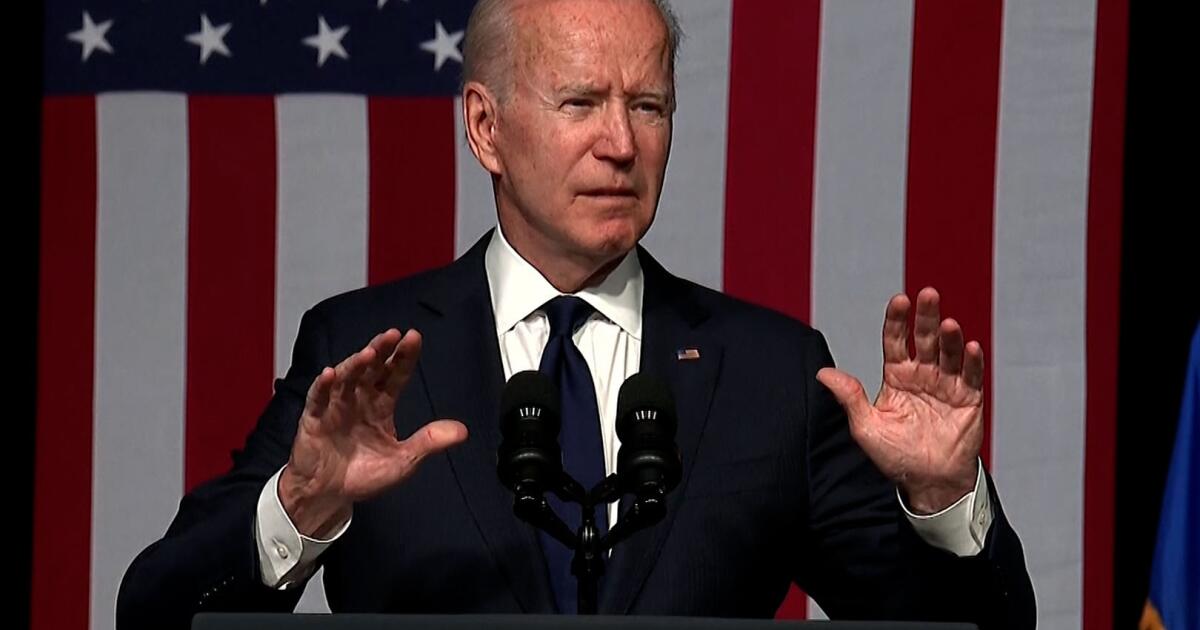
Biden honors victims of Tulsa Race Massacre at centennial event
LA Times
Editorial: A century after the Tulsa massacre, we have yet to atone for America’s racism
LA Times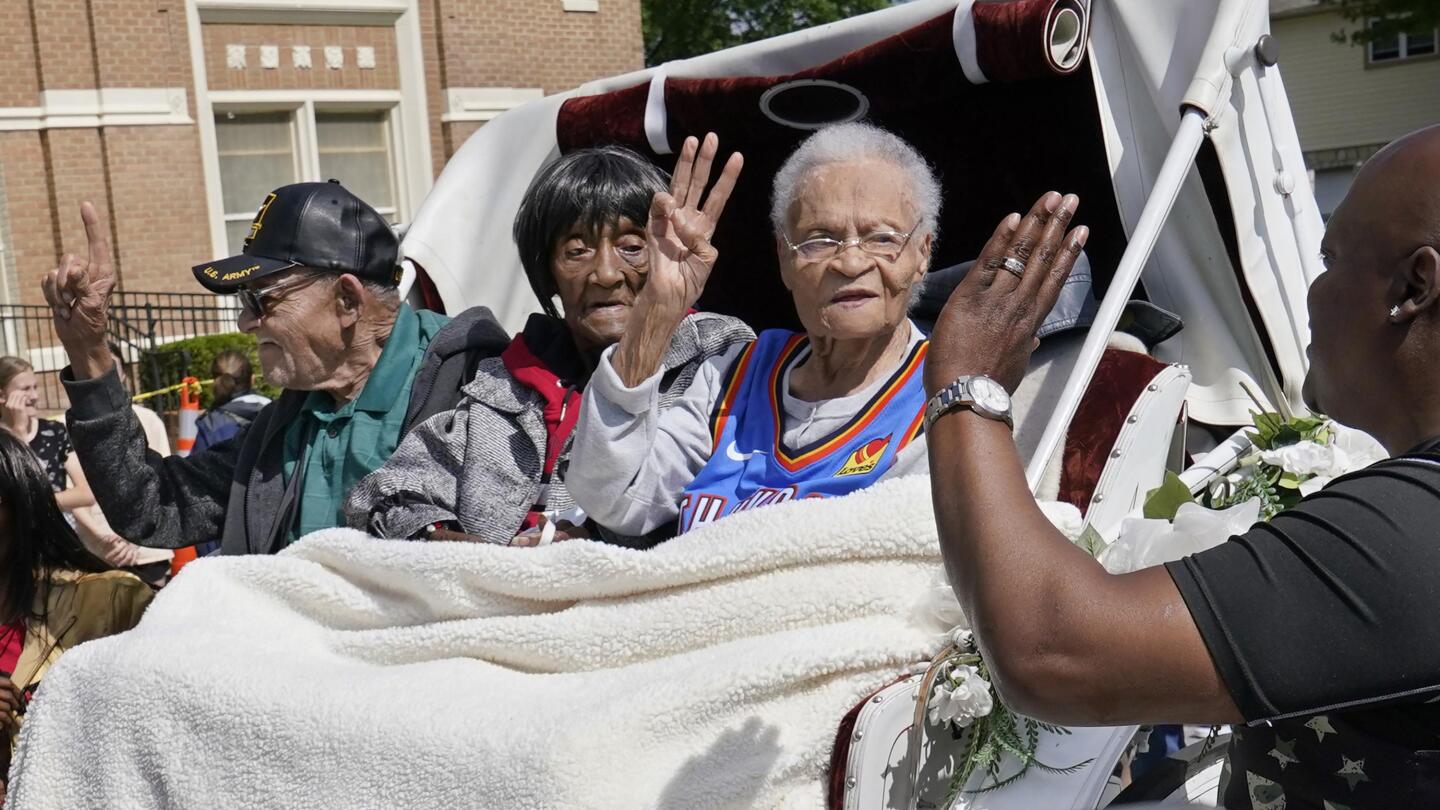
Tulsa Race Massacre centennial events proceed amid hiccups
Associated Press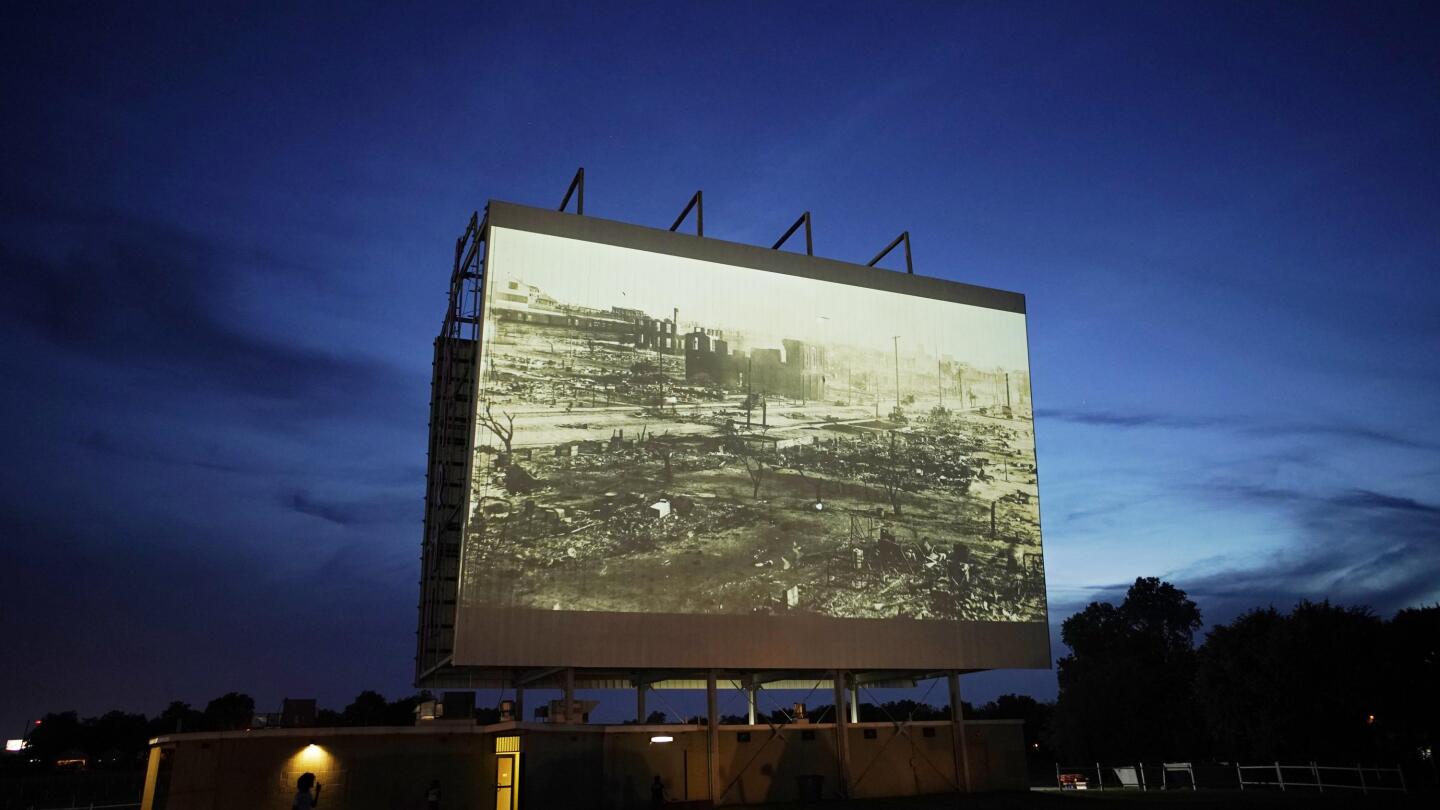
Tulsa massacre documentaries offer deep dive into tragedy
Associated Press
Tulsa Race Massacre centennial events proceed amid hiccups
LA Times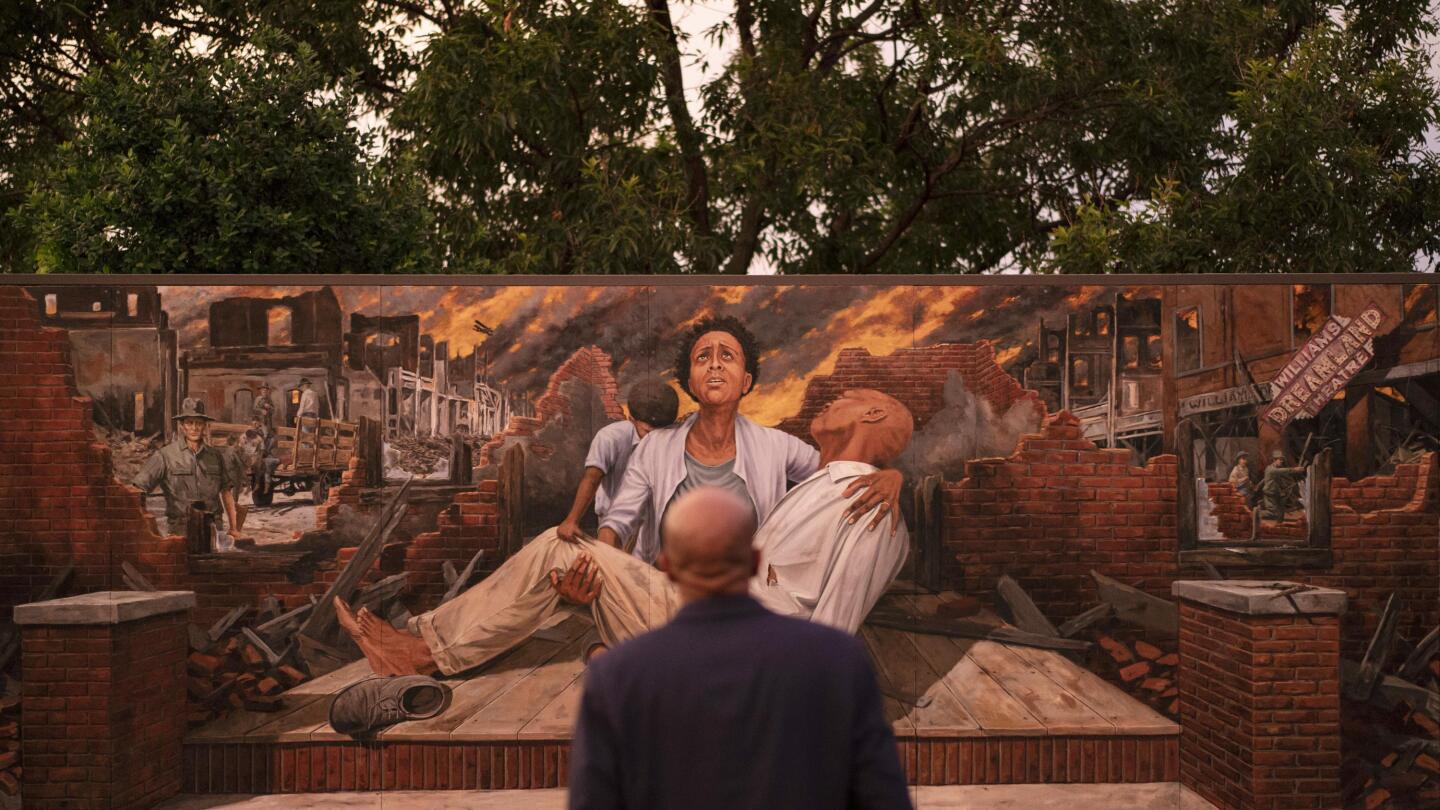
How Tulsa massacre spent most of last century unremembered
Associated Press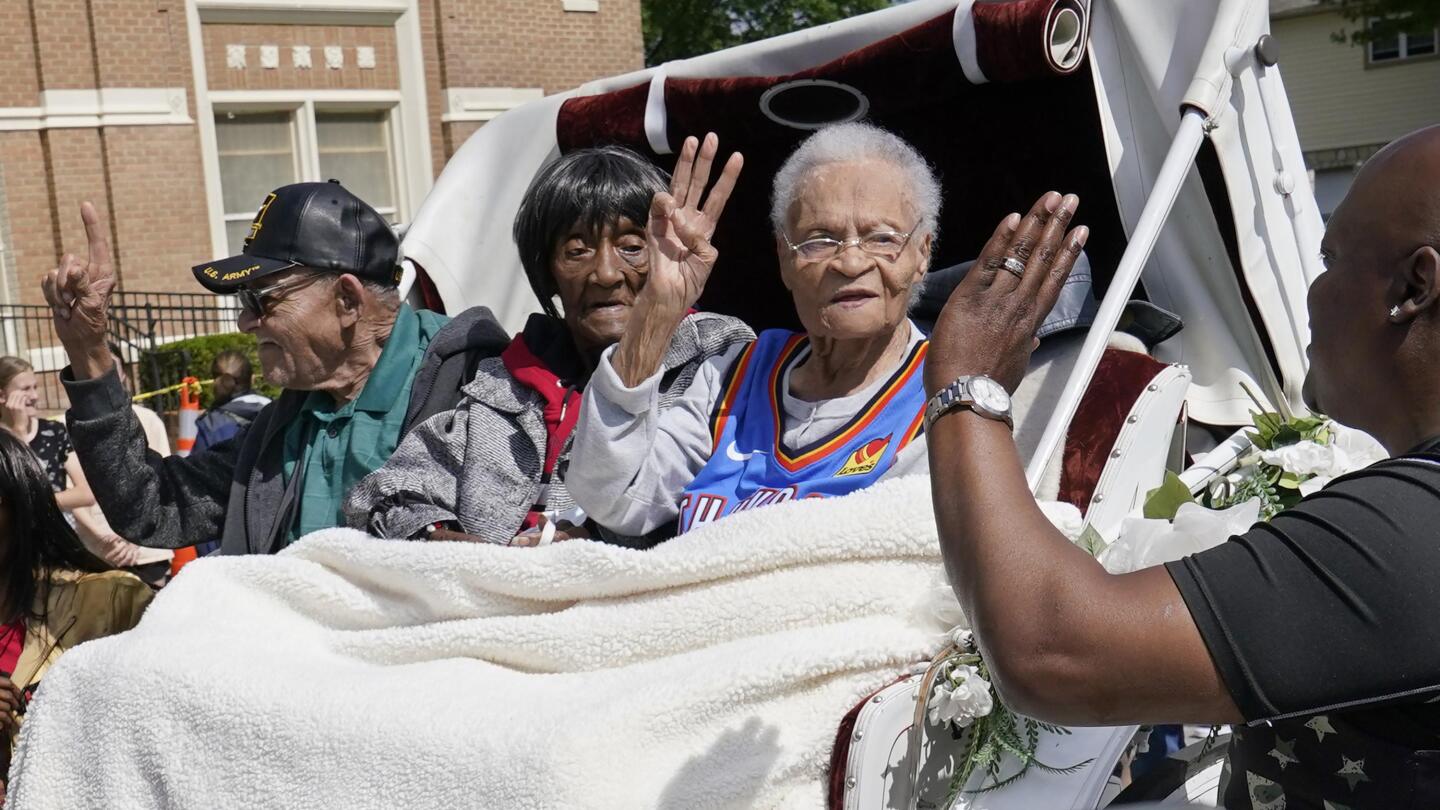
Organizers: Dispute over survivors scrapped Tulsa event
Associated Press
100 Years Later, A Survivor's Story Of The Tulsa Race Massacre
NPR
The 1921 Tulsa Race Massacre And What Survivors And Descendants Are Owed
Huff Post
Century after massacre, Black Tulsans struggle for a voice
Associated Press
100 years after Tulsa Race Massacre, the damage remains
Associated Press
Biden to visit Tulsa for 100th anniversary of race massacre
Associated Press
A Century After The Race Massacre, Tulsa Confronts Its Bloody Past
NPR
Tulsa Race Massacre Survivors Recall Century-Old Horrors During Congressional Hearing
Huff Post
Survivors Of 1921 Tulsa Race Massacre Share Eyewitness Accounts
NPR
Oklahoma governor booted from Tulsa Race Massacre commission
Associated Press
Lawsuit seeks redress for 1921 massacre of Tulsa’s Black district
Al Jazeera
Oklahoma Lawsuit Seeks Reparations In Connection To 1921 Tulsa Massacre
NPR
Attorneys file lawsuit seeking redress for Tulsa massacre
Associated PressDiscover Related

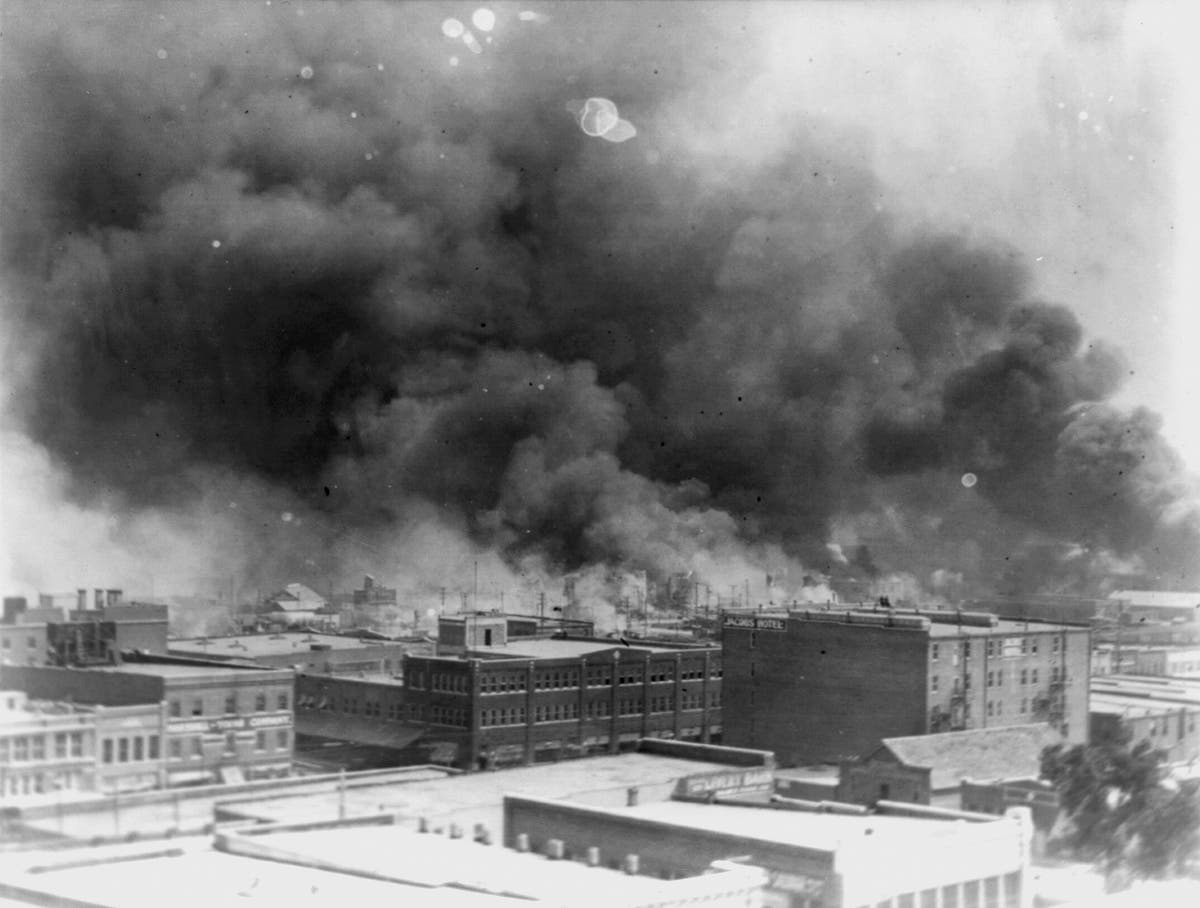

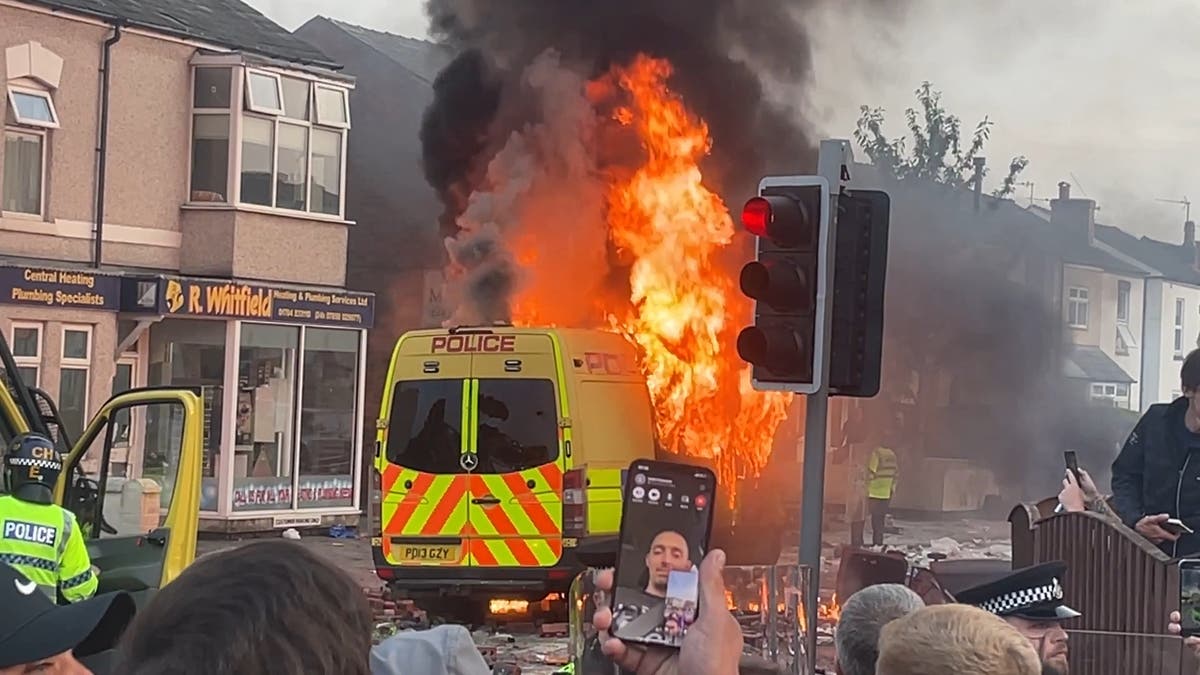










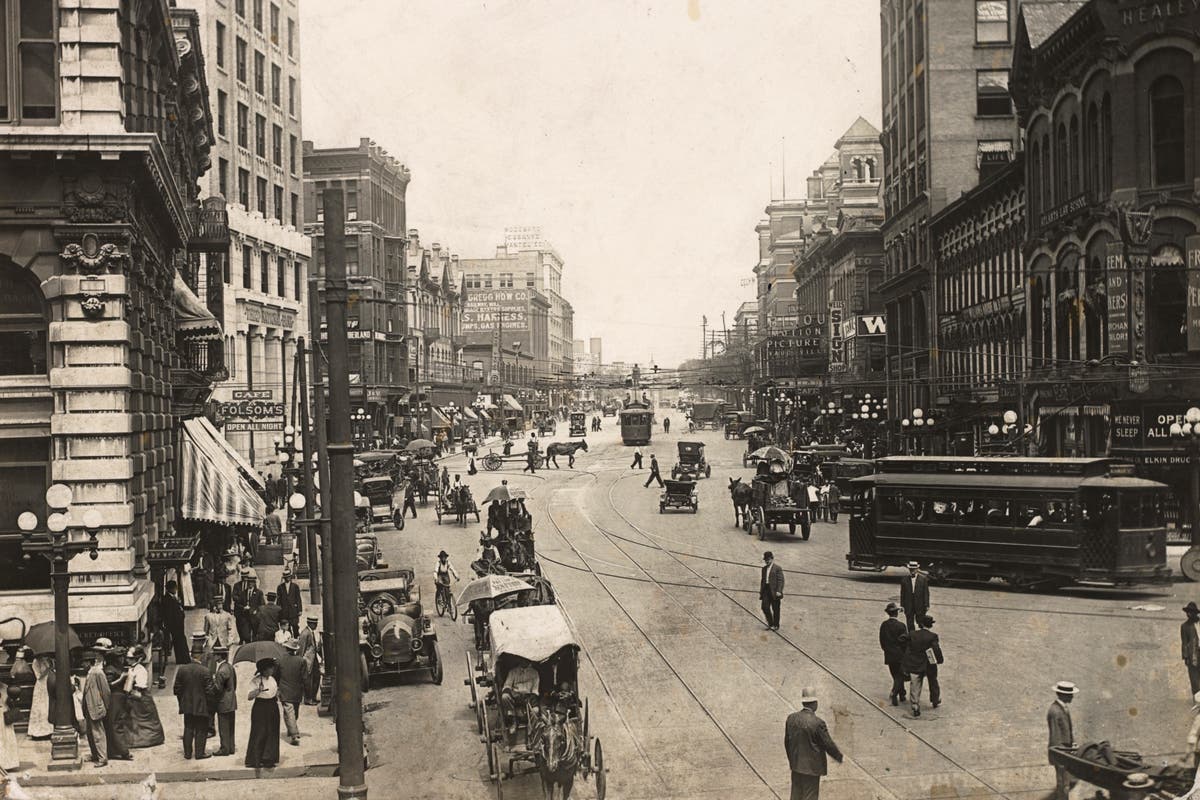
)



